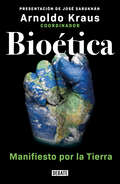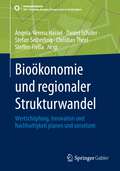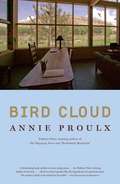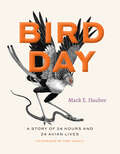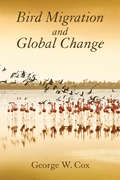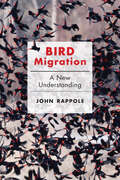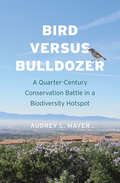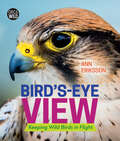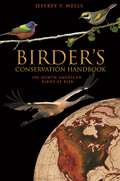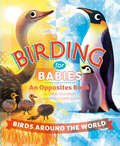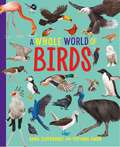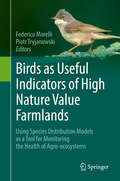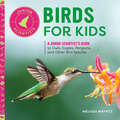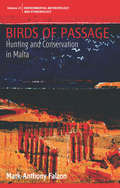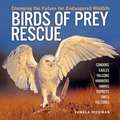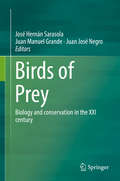- Table View
- List View
Bioética: Manifiesto por la Tierra
by Arnoldo KrausA 50 años de la publicación de Bioethics, nuevas voces se suman al discurso en pro de nuestro planeta. Saúl Alcántara Onofre • Ana Barahona • Mauricio Beuchot Rolando Cordera Campos • Sergio García Ramírez Ángeles González Gamio • Arnoldo Kraus Eduardo Matos Moctezuma • Silvia Molina Herminia Pasantes • Jacqueline Peschard José Sarukhán • Fernando Serrano Migallón • Sergio Vela «En 2021 se cumplieron 50 años de la publicación de Bioethics: Bridge to the Future, texto indispensable cuando se cavila acerca de la salud de nuestra casa, la Tierra. Van Rensselaer Potter -1911-2001-, bioquímico estadounidense, profesor de Oncología en la Universidad de Wisconsin-Madison, retomó el término bioética, acuñado previamente por Fritz Jahr, cuyo propósito fundamental consiste en sumar las voces de humanistas y científicos a favor de la Tierra. [ Cincuenta años después de la publicación de Bioethics: Bridge to the Future, la salud de la Tierra ha empeorado.Cada día la prensa informa sobre nuevos desastres ecológicos. Día tras día científicos y humanistas advierten sobre los peligros latentes debidos al uso irracional de la tecnología sobre la Tierra, y subrayan que de no modificarse elpapel depredador del ser humano en el corto plazo la humanidad entera corre peligro. Las voces aquí reunidas, intranquilas por la continuidad de nuestra especie, celebramos la lúcida iniciativa de Potter e instamos a la sociedad para contagiar la idea seminal de la bioética, cuyo leitmotiv se encuadra en la palabra supervivencia. Convencer a políticos y empresarios de sus acciones nocivas es función de la sociedad. De no modificarse el rumbo depredador contra la naturaleza, el futuro y el de nuestros descendientes se encuentra amenazado.>> -Arnoldo Kraus
Bioökonomie und regionaler Strukturwandel: Wertschöpfung, Innovation und Nachhaltigkeit planen und umsetzen (SDG - Forschung, Konzepte, Lösungsansätze zur Nachhaltigkeit)
by Steffen Fleßa Daniel Schiller Angela-Verena Hassel Stefan Seiberling Christian TheelBioökonomie ist eine neue branchenübergreifende Form des Wirtschaftens, die das Potenzial hat, die bisherige Ökonomie und einzelne Regionen grundlegend zu verändern. Dieser Überzeugung folgend stellen die Herausgeber und Autoren dieses Buches den aktuellen Wissenstand aus Theorie und Praxis der Bioökonomie zusammen, entwickeln neue Methoden für einen bioökonomischen Strukturwandel und reflektieren bestehende Bioökonomiekonzepte. Der komplexe und vielschichtige Prozess einer pflanzenbasierten Bioökonomie in ländlichen Räumen wird aus unterschiedlichen Perspektiven betrachtet. Zunächst werden ökonomische Grundlagen sowohl aus gesamt- als auch aus einzelwirtschaftlicher Sicht diskutiert. Dem schließen sich Beispiele an, wie regionale Innovationsnetzwerke und Wertschöpfungsketten der Bioökonomie einen Beitrag zur nachhaltigen Regionalentwicklung und zum gesellschaftlichen Wandel leisten können. Die darauf aufbauende Analyse legt dar, wie verschiedene Akteure und Prozesse eine regionale Bioökonomie in der Praxis etablieren können. Ausgewählte Anwendungs- und Umsetzungsbeispiele für Innovationen pflanzenbasierter Bioökonomie im nordöstlichen Mecklenburg-Vorpommern runden das Buch ab und zeigen das Potenzial für eine Transformation der Wirtschaft in der Region und darüber hinaus.
Bird Ambulance
by Arline ThomasStories from a woman in New York who began her own shelter for injured wild birds. She talks about assisting falcons, hawks, pigeons and owls, but there is also a chapter on other animals--like squirrels--who come into her life. A fantastic read with helpful information on what to feed injured birds and mammals.
Bird Cloud
by Annie Proulx"Bird Cloud" is the name Annie Proulx gave to 640 acres of Wyoming wetlands and prairie and four-hundred-foot cliffs plunging down to the North Platte River. On the day she first visited, a cloud in the shape of a bird hung in the evening sky. Proulx also saw pelicans, bald eagles, golden eagles, great blue herons, ravens, scores of bluebirds, harriers, kestrels, elk, deer and a dozen antelope. She fell in love with the land, then owned by the Nature Conservancy, and she knew what she wanted to build on it--a house in harmony with her work, her appetites and her character, a library surrounded by bedrooms and a kitchen. Proulx's first work of nonfiction in more than twenty years, Bird Cloud is the story of designing and constructing that house--with its solar panels, Japanese soak tub, concrete floor and elk horn handles on kitchen cabinets. It is also an enthralling natural history and archaeology of the region--inhabited for millennia by Ute, Arapaho and Shoshone Indians-- and a family history, going back to nineteenth-century Mississippi riverboat captains and Canadian settlers. Proulx, a writer with extraordinary powers of observation and compassion, here turns her lens on herself. We understand how she came to be living in a house surrounded by wilderness, with shelves for thousands of books and long worktables on which to heap manuscripts, research materials and maps, and how she came to be one of the great American writers of her time. Bird Cloud is magnificent.
Bird Day: A Story of 24 Hours and 24 Avian Lives (Earth Day Ser.)
by Mark E. HauberAn hourly guide that follows twenty-four birds as they find food, mates, and safety from predators. From morning to night and from the Antarctic to the equator, birds have busy days. In this short book, ornithologist Mark E. Hauber shows readers exactly how birds spend their time. Each chapter covers a single bird during a single hour, highlighting twenty-four different bird species from around the globe, from the tropics through the temperate zones to the polar regions. We encounter owls and nightjars hunting at night and kiwis and petrels finding their way in the dark. As the sun rises, we witness the beautiful songs of the “dawn chorus.” At eleven o’clock in the morning, we float alongside a common pochard, a duck resting with one eye open to avoid predators. At eight that evening, we spot a hawk swallowing bats whole, gorging on up to fifteen in rapid succession before retreating into the darkness. For each chapter, award-winning artist Tony Angell has depicted these scenes with his signature pen and ink illustrations, which grow increasingly light and then dark as our bird day passes. Working closely together to narrate and illustrate these unique moments in time, Hauber and Angell have created an engaging read that is a perfect way to spend an hour or two—and a true gift for readers, amateur scientists, and birdwatchers.
Bird Food Recipes: Storey Country Wisdom Bulletin A-137 (Storey Country Wisdom Bulletin Ser.)
by Rhonda Massingham HartSince 1973, Storey's Country Wisdom Bulletins have offered practical, hands-on instructions designed to help readers master dozens of country living skills quickly and easily. There are now more than 170 titles in this series, and their remarkable popularity reflects the common desire of country and city dwellers alike to cultivate personal independence in everyday life.
Bird Girl: Gene Stratton-Porter Shares Her Love of Nature with the World
by Jill EsbaumThis lively STEAM picture book is about the life of Gene Stratton-Porter, a pioneering wildlife photographer and popular author from the late 19th and early 20th century, who showed the world the beauty of nature, especially birds, and why it was worth preserving.Gene Stratton-Porter was a farm girl who fell in love with birds, from the chickens whose eggs she collected to the hawks that preyed on them. When she grew up, Gene wanted nothing more than to share her love of birds with the world. She wrote stories about birds, but when a magazine wanted to publish them next to awkward photos of stuffed birds, she knew she had to take matters into her own hands. Teaching herself photography, Gene began to take photos of birds in the wild. Her knowledge of birds and how to approach them allowed her to get so close you could count the feathers of the birds in her photos. Her work was unlike anything Americans had ever seen before—she captured the true lives of animals in their natural habitat. A pioneering wildlife photographer and one of the most popular authors of the early 20th century, this bird girl showed the world the beauty of nature and why it was worth preserving.
Bird Migration and Global Change
by George W. CoxChanges in seasonal movements and population dynamics of migratory birds in response to ongoing changes resulting from global climate changes are a topic of great interest to conservation scientists and birdwatchers around the world. Because of their dependence on specific habitats and resources in different geographic regions at different phases of their annual cycle, migratory species are especially vulnerable to the impacts of climate change. In Bird Migration and Global Change, eminent ecologist George W. Cox brings his extensive experience as a scientist and bird enthusiast to bear in evaluating the capacity of migratory birds to adapt to the challenges of a changing climate. Cox reviews, synthesizes, and interprets recent and emerging science on the subject, beginning with a discussion of climate change and its effect on habitat, and followed by eleven chapters that examine responses of bird types across all regions of the globe. The final four chapters address the evolutionary capacity of birds, and consider how best to shape conservation strategies to protect migratory species in coming decades. The rate of climate change is faster now than at any other moment in recent geological history. How best to manage migratory birds to deal with this challenge is a major conservation issue, and Bird Migration and Global Change is a unique and timely contribution to the literature.
Bird Migration: A New Understanding
by John H. RappoleA fascinating and nuanced exploration of why, how, and which birds migrate.Bird migration captivates the human imagination, yet for most of us, key aspects of the phenomenon remain a mystery. How do birds sense the ideal moment to take wing, and once the epic journey has begun, how do they find their distant destinations? Fresh insights about avian movements are still constantly emerging, powered by new tools like molecular genetics and transmitter miniaturization. In this book, renowned ornithologist and author John H. Rappole reveals intriguing results of recent scientific studies on migration, explaining their importance for birders, nature lovers, and researchers alike. Debunking misconceptions about the lives of birds that have persisted for thousands of years, Rappole explores unexpected causes and previously misunderstood aspects of the annual migration cycle. From the role of migrating birds in zoonotic disease transmission to climate change's impact on migration patterns, Rappole tackles crucial questions and ensures that readers come away with a new understanding of why and how birds migrate.
Bird Talk: Hilariously Accurate Ways to Identify Birds by the Sounds They Make
by Becca RowlandA hilarious, informative, and vibrantly illustrated guide to 101 bird songs that sound surprisingly familiar. Have you ever gone for a walk in the woods and wondered what bird was making a sound like a siren going off, or somebody revving a chainsaw engine—or sneezing? Do you hear birds every day, in the park or your neighborhood, but never know quite what you are listening to? Birds are singing all around us, and author and illustrator Becca Rowland, aka Girl in White Glasses, connects the dots between their songs and the birds who make them, helping you to easily identify and remember their calls. Combining illustrations of common and rare birds with fascinating facts and whimsical descriptions of their calls, this book is full of humor and charm. From space lasers to cheeseburgers, Bird Talk introduces you to the weird and wonderful world of bird songs. This publication conforms to the EPUB Accessibility specification at WCAG 2.0 Level AA.
Bird versus Bulldozer: A Quarter-Century Conservation Battle in a Biodiversity Hotspot
by Audrey L. MayerAn examination of the struggle to conserve biodiversity in urban regions, told through the story of the threatened coastal California gnatcatcher The story of the rare coastal California gnatcatcher is a parable for understanding the larger ongoing struggle to conserve biodiversity in regions confronted with intensifying urban development. Because this gnatcatcher depends on vanishing coastal sage scrub in Southern California, it has been regarded as a flagship species for biodiversity protection since the early 1990s. But the uncertainty of the gnatcatcher&’s taxonomic classification—and whether it can be counted as a &“listable unit&” under the Endangered Species Act—has provoked contentious debate among activists, scientists, urban developers, and policy makers. Synthesizing insights from ecology, environmental history, public policy analysis, and urban planning as she tracks these debates over the course of the past twenty-five years, Audrey L. Mayer presents an ultimately optimistic take on the importance of much-neglected regional conservation planning strategies to create sustainable urban landscapes that benefit humans and wildlife alike.
Bird's-Eye View: Keeping Wild Birds in Flight (Orca Wild #4)
by Ann ErikssonWild birds are everywhere, from the dry deserts to the icy poles. We see them soaring overhead, paddling across water, flitting through trees, pecking at the ground or our backyard bird feeders and singing from fence posts. Birds contribute to the health of the planet and provide pleasure for millions of people, but wild birds are in trouble. Today, almost 200 bird species are critically endangered. They are threatened by habitat loss, invasive species, climate change, pesticides, plastics in the environment, human-made structures and other animals. Bird’s-Eye View looks at why wild birds are important, why they need help and what young people all over the world are doing and can do to give wild birds a boost. The epub edition of this title is fully accessible.
Birder's Conservation Handbook: 100 North American Birds at Risk
by Jeffrey V. WellsUntil now there has been no single, comprehensive resource on the status of North America's most threatened birds and what people can do to help protect them. Birder's Conservation Handbook is the only book of its kind, written specifically to help birders and researchers understand the threats while providing actions to protect birds and their habitats. Jeffrey Wells has distilled vast amounts of essential information into a single easy-to-use volume-required reading for anyone who loves birds and wants to ensure they are protected. At-a-glance species accounts cover in detail North America's one hundred most at-risk birds; each account is beautifully illustrated by today's top bird artists. The text includes status, distribution, ecology, threats, conservation actions and needs, and references. A distribution map accompanies each entry. Chapters discuss birds as indicators of environmental health, the state of North American bird populations, major conservation issues, and initiatives now underway to improve the health of North America's birds. Birder's Conservation Handbook is an indispensable resource for birdwatchers, researchers, naturalists, and conservationists. Reading it will inspire you to become an active steward of our birds and the habitats we share. A comprehensive guide to North America's one hundred most at-risk birds and how to protect them Compact and easy to use, with beautiful illustrations and data organized for convenient, at-a-glance reference Detailed species accounts, including distribution maps Practical advice on conservation Information on leading conservation agencies and resources
Birding for Babies: An Opposites Book
by Chloe GoodhartDiscover new feathery friends in this book series filled with fun facts that invites young readers into the exciting world of bird-watching.From the slow woodcock to the fast roadrunner, kids will explore some of the most popular birds around the world while learning about opposites, too! The whole family can bring these books outdoors and bird together!
Birds (A Whole World of... #4)
by Anna ClaybourneGet lost in the diverse and bustling world of birds - with more to explore than you ever imagined!A Whole World of Birds presents the stunning breadth of bird varieties that fill the Earth. Who is related to whom? Which type fly at night, fly the fastest ... or can't fly at all? Where do the most colourful birds call home, and which live at sea? This book has the answers and so many more facts filling the beautifully illustrated pages.A Whole World of is a book series looking at the extraordinary diversity of life on Earth - the defining features and evolutionary branches - and encourages readers age 7 and up to consider why it is important to maintain biodiversity. Written by award-winning author, Anna Claybourne, with artwork by award-winning illustrator, Yekyung Kwon.Books in the series:A Whole World of Mammals/A Whole World of Prehistoric Life/A Whole World of Minibeasts/A Whole World of Birds/A Whole World of Rocks and Minerals/A Whole World of Plants and Fungi
Birds and Us: A 12,000-Year History from Cave Art to Conservation
by Tim BirkheadFrom award-winning author and ornithologist Tim Birkhead, a sweeping history of the long and close relationship between birds and humansSince the dawn of human history, birds have stirred our imagination, inspiring and challenging our ideas about science, faith, art, and philosophy. We have worshipped birds as gods, hunted them for sustenance, adorned ourselves with their feathers, studied their wings to engineer flight, and, more recently, attempted to protect them. In Birds and Us, award-winning writer and ornithologist Tim Birkhead takes us on a dazzling epic journey through our mutual history with birds, from the ibises mummified and deified by Ancient Egyptians to the Renaissance fascination with woodpecker anatomy—and from the Victorian obsession with egg collecting to today’s fight to save endangered species and restore their habitats.Spanning continents and millennia, Birds and Us chronicles the beginnings of a written history of birds in ancient Greece and Rome, the obsession with falconry in the Middle Ages, and the development of ornithological science. Moving to the twentieth century, the book tells the story of the emergence of birdwatching and the field study of birds, and how they triggered an extraordinary flowering of knowledge and empathy for birds, eventually leading to today’s massive worldwide interest in birds—and the realization of the urgent need to save them.Weaving in stories from Birkhead’s life as scientist, including far-flung expeditions to wondrous Neolithic caves in Spain and the bustling guillemot colonies of the Faroe Islands, this rich and fascinating book is an unforgettable account of how birds have shaped us, and how we have shaped them.
Birds as Useful Indicators of High Nature Value Farmlands: Using Species Distribution Models as a Tool for Monitoring the Health of Agro-ecosystems
by Federico Morelli Piotr TryjanowskiThis book helps to establish a simple framework to identify and use bird species as a bioindicator for high nature value (HNV) farmlands. This book focuses on suitable methods for monitoring the HNV areas, and presents the results of several case studies. The chapters put forward ways to integrate ecosystems assessment, geographical information systems (GIS) and strategies for conservation of local biodiversity. An innovative framework focuses on the use of species distribution models (SDMs) in order to explore the importance of each characteristic of HNV farmlands. Furthermore, the book examines the relationships among bird species richness, land use diversity and landscape metrics at a local scale in the farmlands.
Birds for Kids: A Junior Scientist's Guide to Owls, Eagles, Penguins, and Other Bird Species (Junior Scientists)
by Melissa MayntzExplore the wild and wonderful world of birds with the Junior Scientists series for kids ages 6 to 9From tiny hummingbirds to powerful eagles and everything in between—our planet is home to so many beautifully feathered friends! This big book of birds is packed with tons of cool facts and colorful photos that offer a fascinating peek into their lives. It's written especially for curious new readers, with engaging trivia and age-appropriate language that lets kids read and explore independently as they learn all about birds!35 birds to meet— Kids will discover a variety of bird species like flamingos, penguins, and barn swallows, and find out what they look like, where they live, what they eat, and more.Fun facts—Keep young readers fascinated with cool facts about how baby birds are born, if birds can get lost when they fly, and which water bird eats baby alligators!Learning in action— You'll even find some activities to try, like helping your child measure their own wingspan, build a nest, and spotting your backyard birds.Get ready for an exciting journey through the lives of our beaked buddies in this ultimate bird book for kids.
Birds in Winter: Surviving the Most Challenging Season
by Roger F. PasquierHow birds have evolved and adapted to survive winterBirds in Winter is the first book devoted to the ecology and behavior of birds during this most challenging season. Birds remaining in regions with cold weather must cope with much shorter days to find food and shelter even as they need to avoid predators and stay warm through the long nights, while migrants to the tropics must fit into very different ecosystems and communities of resident birds. Roger Pasquier explores how winter affects birds’ lives all through the year, starting in late summer, when some begin caching food to retrieve months later and others form social groups lasting into the next spring. During winter some birds are already pairing up for the following breeding season, so health through the winter contributes to nesting success.Today, rapidly advancing technologies are enabling scientists to track individual birds through their daily and annual movements at home and across oceans and hemispheres, revealing new and unexpected information about their lives and interactions. But, as Birds in Winter shows, much is visible to any interested observer. Pasquier describes the season’s distinct conservation challenges for birds that winter where they have bred and for migrants to distant regions. Finally, global warming is altering the nature of winter itself. Whether birds that have evolved over millennia to survive this season can now adjust to a rapidly changing climate is a problem all people who enjoy watching them must consider.Filled with elegant line drawings by artist and illustrator Margaret La Farge, Birds in Winter describes how winter influences the lives of birds from the poles to the equator.
Birds of Arizona and New Mexico (A Timber Press Field Guide)
by Melissa Fratello Steven PragerIdentify and discover the inner lives of birds with this easy to use full-color guidebook.Birds of Arizona and New Mexico is a comprehensive field guide to commonly found birds in the American Southwest. Authors Melissa Fratello and Steven Prager speak to a new generation of birders, offering a unique perspective and approach to birding that prioritizes accessibility and inclusion. They also cover the region&’s unique issues, such as birding on tribal land, and birding along the Southern Border. Birds of Arizona and New Mexico will delight both experienced and aspiring birders with: ·Coverage of Arizona, New Mexico, and their border regions ·Illustrated descriptions of nearly 400 bird species ·800+ spectacular photographs of relevant plumages and birds in flight ·Individual range maps showing seasonal and migratory patterns ·And much more!
Birds of Passage: Hunting and Conservation in Malta (Environmental Anthropology and Ethnobiology #25)
by Mark-Anthony FalzonBird migration between Europe and Africa is a fraught journey, particularly in the Mediterranean, where migratory birds are shot and trapped in large numbers. In Malta, thousands of hunters share a shrinking countryside. They also rub shoulders with a strong bird-protection and conservation lobby. Drawing on years of ethnographic fieldwork, this book traces the complex interactions between hunters, birds and the landscapes they inhabit, as well as the dynamics and politics of bird conservation. Birds of Passage looks at the practice and meaning of hunting in a specific context, and raises broader questions about human-wildlife interactions and the uncertain outcomes of conservation.
Birds of Passage: Hunting and Conservation in Malta (Environmental Anthropology and Ethnobiology #25)
by Mark-Anthony FalzonBird migration between Europe and Africa is a fraught journey, particularly in the Mediterranean, where migratory birds are shot and trapped in large numbers. In Malta, thousands of hunters share a shrinking countryside. They also rub shoulders with a strong bird-protection and conservation lobby. Drawing on years of ethnographic fieldwork, this book traces the complex interactions between hunters, birds and the landscapes they inhabit, as well as the dynamics and politics of bird conservation. Birds of Passage looks at the practice and meaning of hunting in a specific context, and raises broader questions about human-wildlife interactions and the uncertain outcomes of conservation.
Birds of Prey Rescue: Changing the Future for Endangered Wildlife
by Pamela HickmanBirds of prey, otherwise known as raptors, have been respected and admired yet also feared and loathed throughout their existence. They are meat-eating birds and extremely well-equipped for the hunt, with powerful eyesight, ultra-sensitive hearing, and sharp talons. Despite these apparent advantages, many birds of prey species are seriously endangered or threatened.This latest addition to the Firefly Animal Rescue series profiles the dedicated people and projects around the world helping raptors to survive, including: The Philippine Eagle Foundation that is bringing the Philippine eagle back from the brink of extinction; Lindsay Oaks, an American microbiologist, who helped discover what is killing vultures in Asia; Sophie Osborn, who monitors released California condors; The biologists using Peregrine falcons as "foster parents" for the young of the endangered South American aplomado falcon. Illustrated with 50 spectacular color photographs, Birds of Prey Rescue also addresses the general biological issues and challenges in preserving a future for endangered wildlife.
Birds of Prey: Biology and conservation in the XXI century
by José Hernán Sarasola Juan Manuel Grande Juan José NegroThis book will provide the state-of-the-art on most of the topics involved in the ecology and conservation of birds of prey. With chapters authored by the most recognized and prestigious researchers on each of the fields, this book will become an authorized reference volume for raptor biologists and researchers around the world.
Birds of a Feather
by Paul FournierIn this new collection, Maine guide, bush pilot, journalist, and professional photographer Paul Fournier spins more stories of the wild outdoors in the inimitable style that earned him the Best Book of 2011 Award from the New England Outdoor Writers Association for Tales from Misery Ridge. In the title essay, Fournier tells the fascinating story of how devoted scientists, citizens, and outdoor professionals brought back the bald eagle in Maine one nesting pair at a time. Other tales strike a similar vein: a group of volunteers and biologists strive to save the rare Arctic char in a remote Maine lake, the author attempts to spy a cougar in Maine, and he and a friend find a daring way to film a world famous clowning skier's downhill run in one "take." Among his adventures and misadventures over the decades, Fournier covers the Sonny Liston/Mohammed Ali fight in Lewiston, gets perilously close to a rutting moose, and witnesses how a pair of deer poachers are literally caught in their own trap. Experienced outdoorsmen in particular will nod with appreciation and pleasure at the author's experiences, and armchair explorers will enjoy his entertaining essays about the strange habits of forest fauna. This diverse collection of stories finds its unity in the author's humor, authority, and love of his subjects: Maine and its wild and civilized inhabitants, whether they climb, slink, swim, fly--or walk on two feet.
